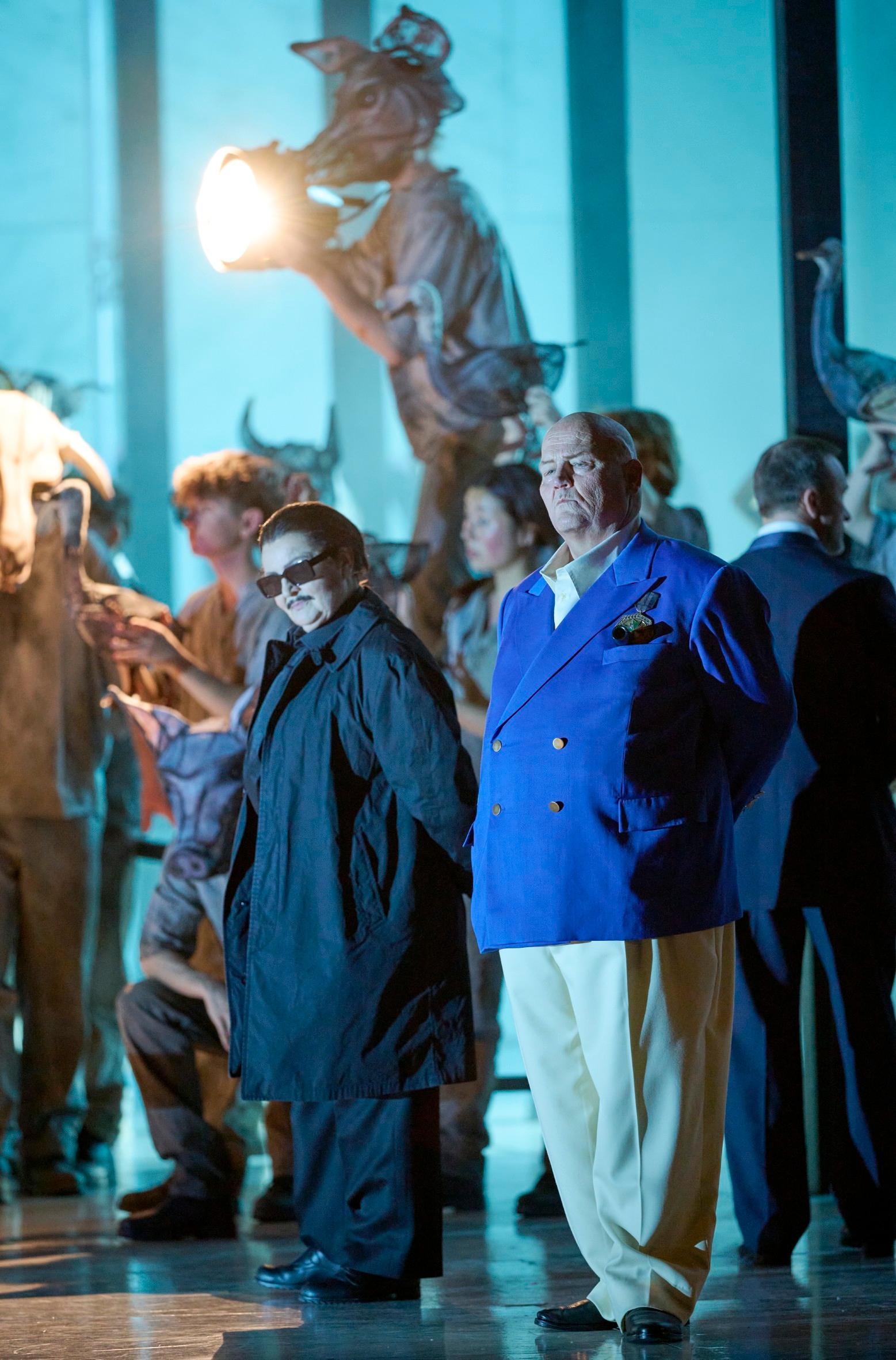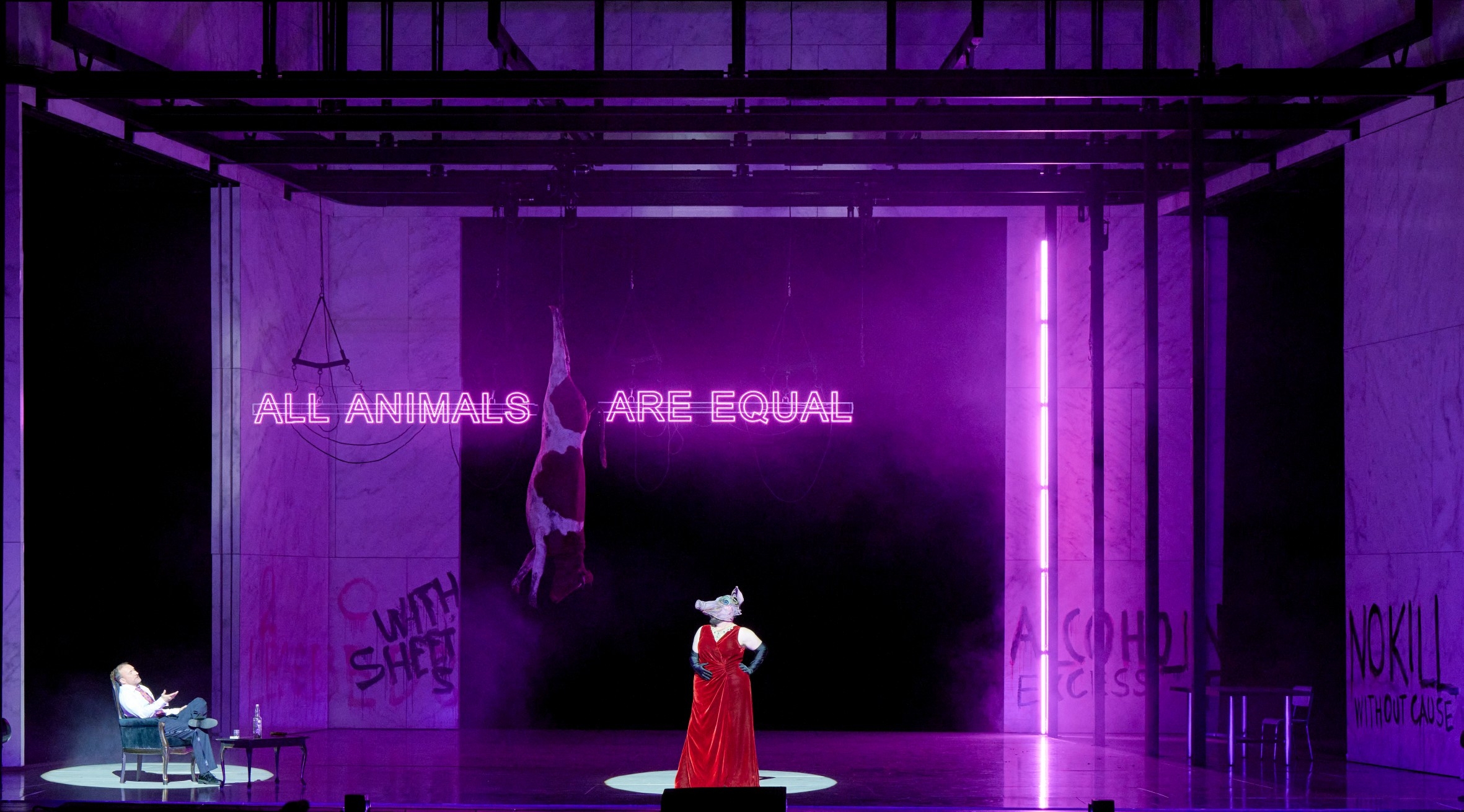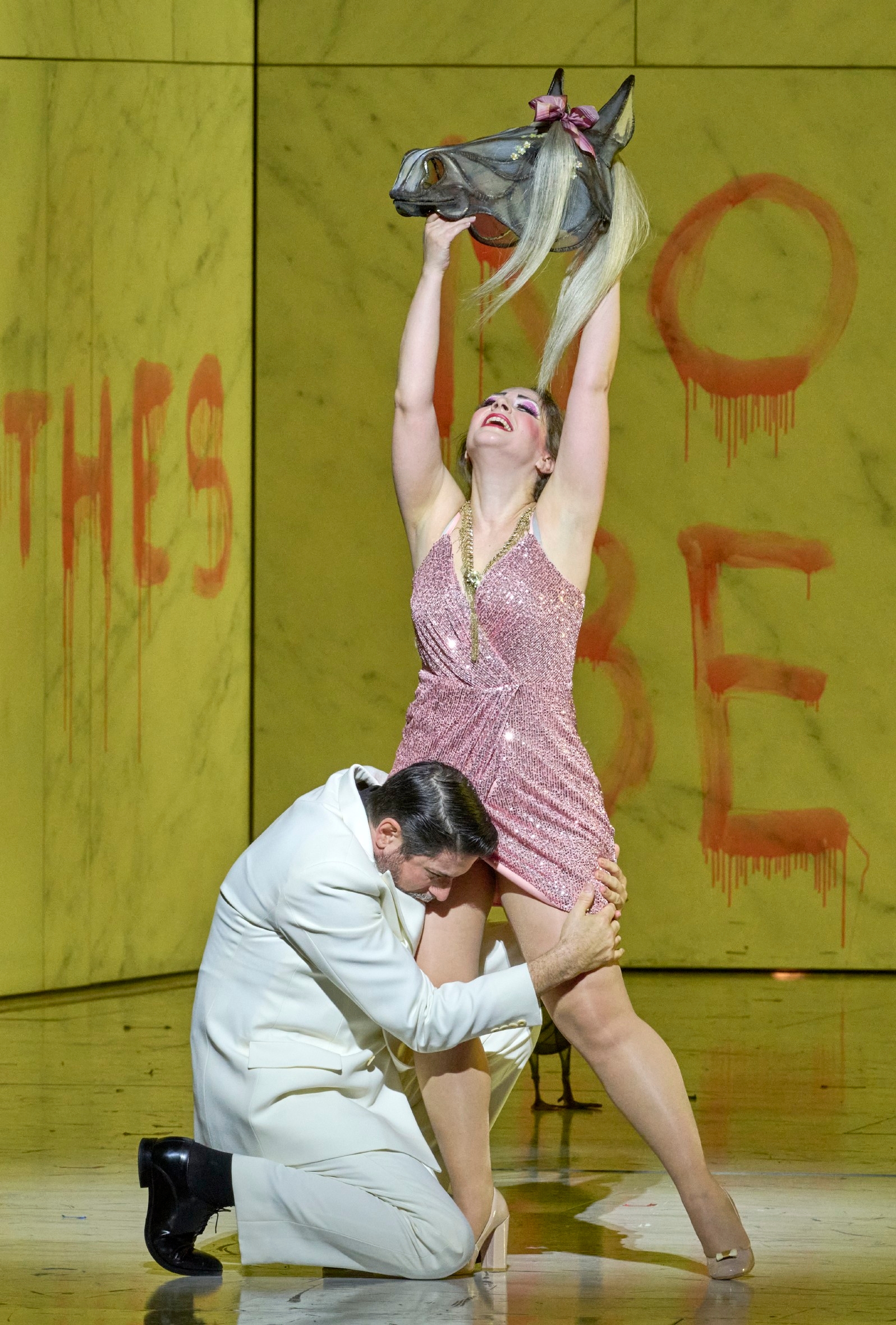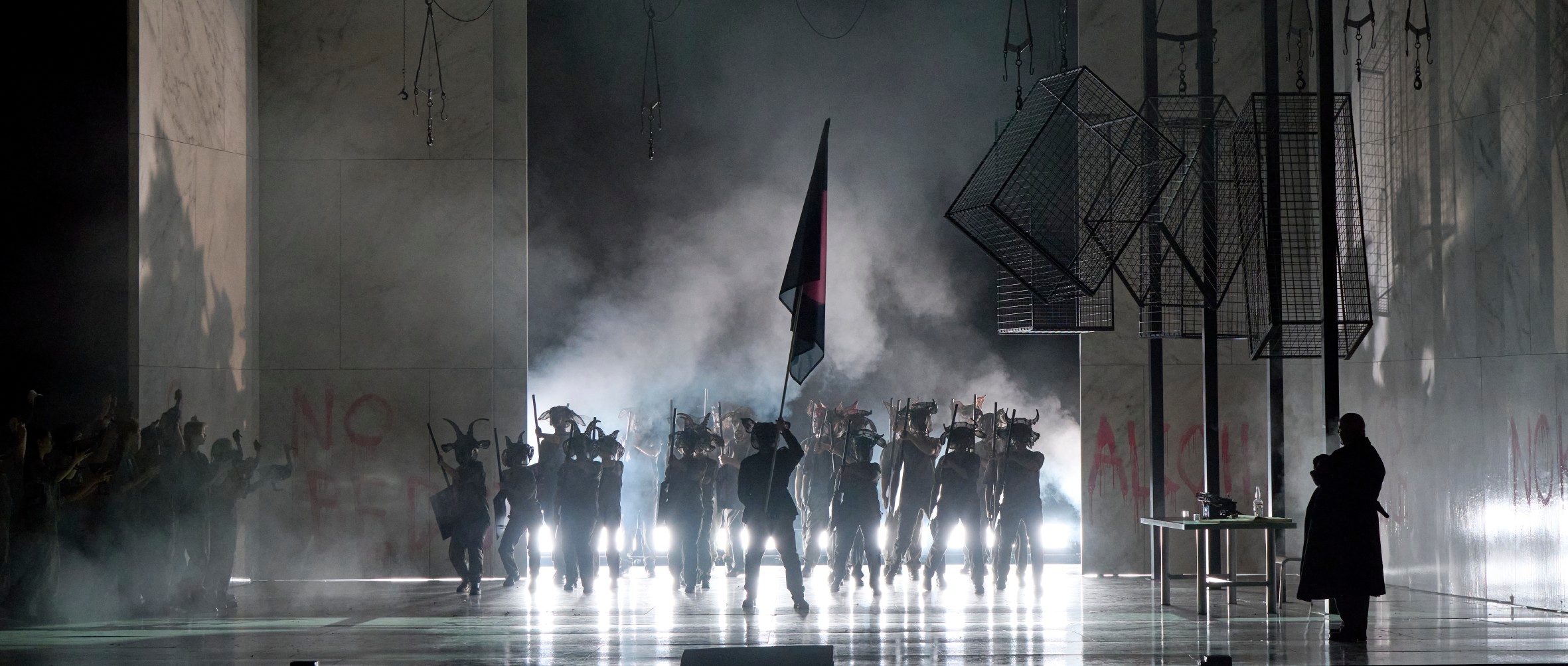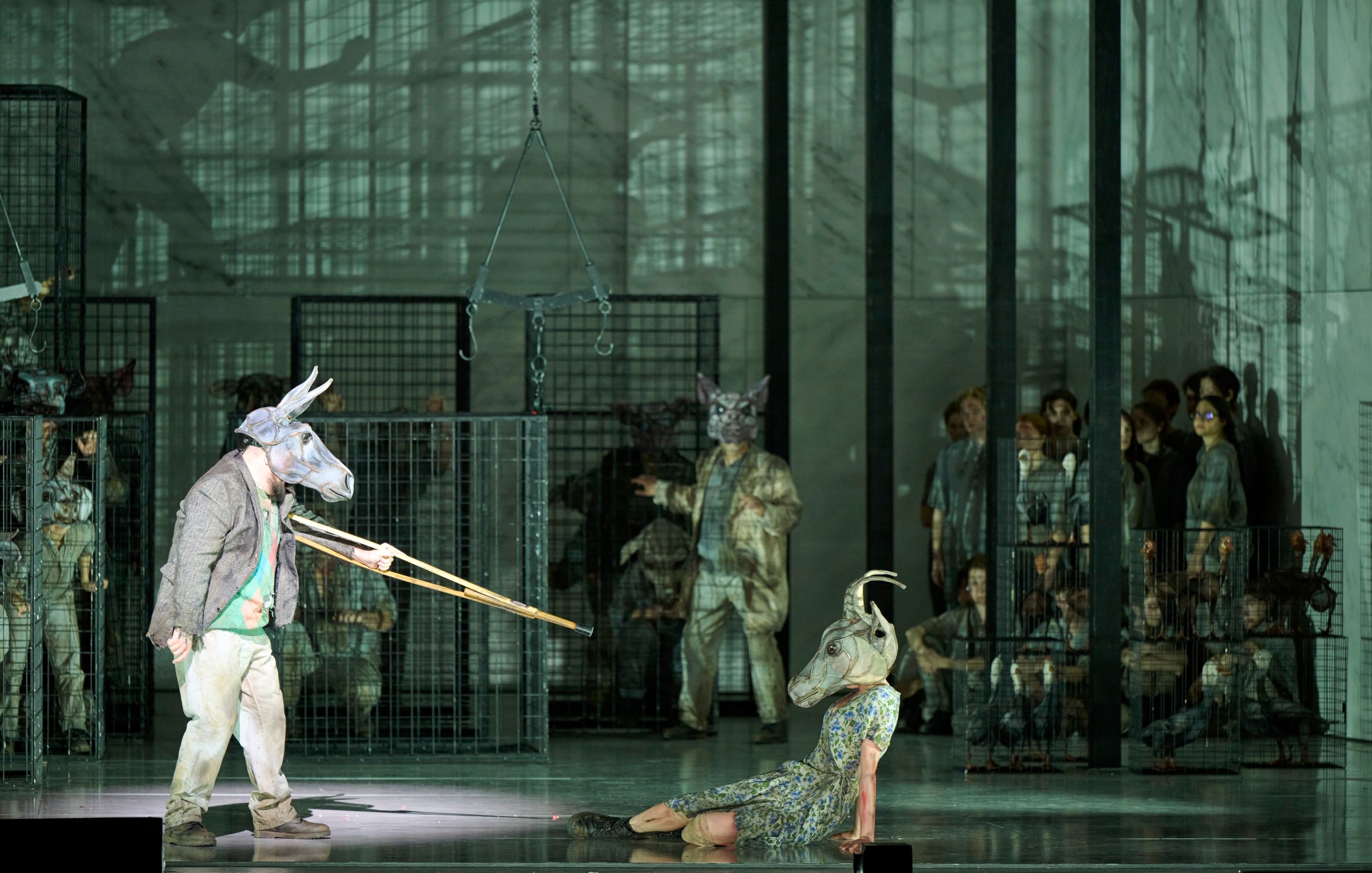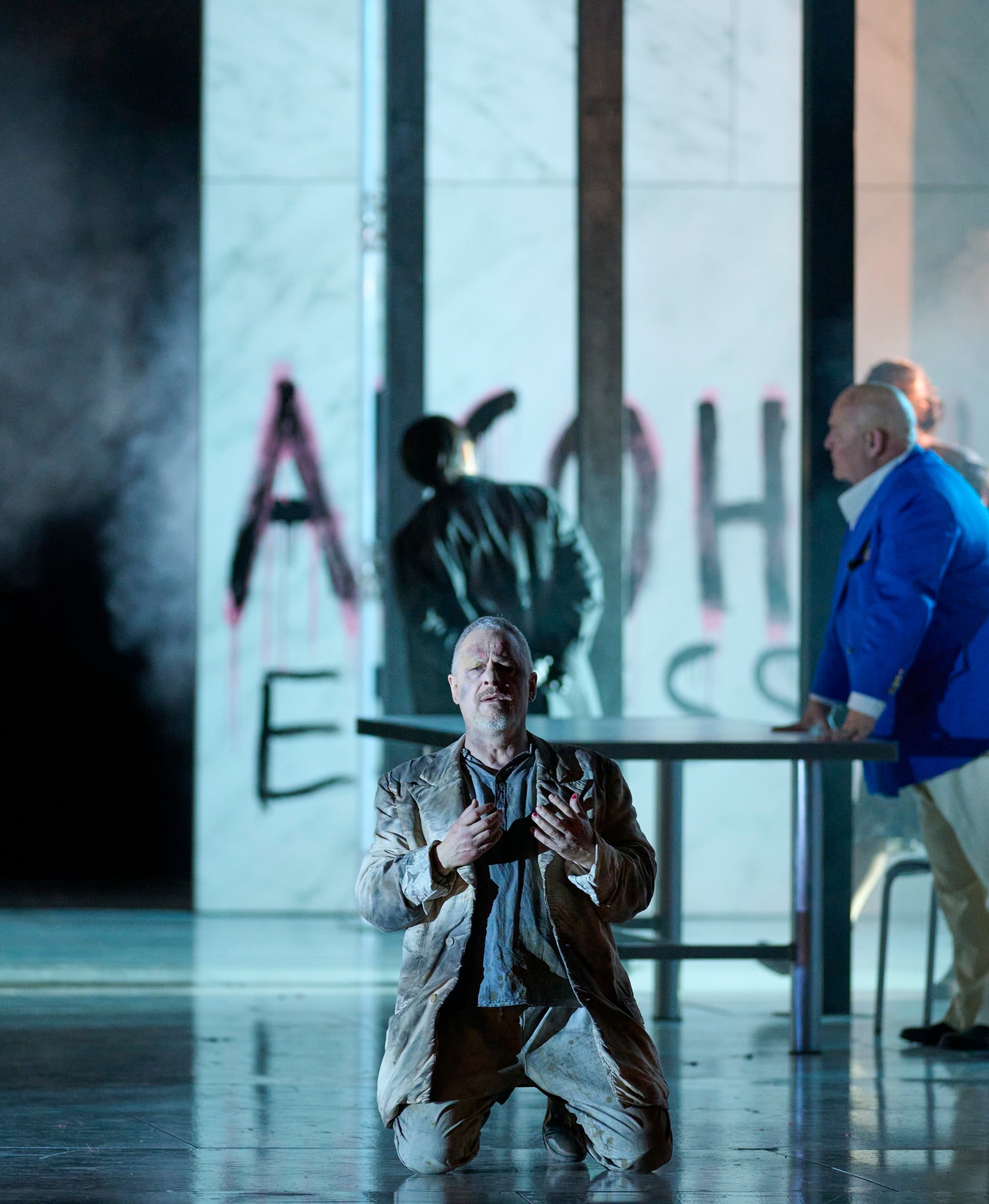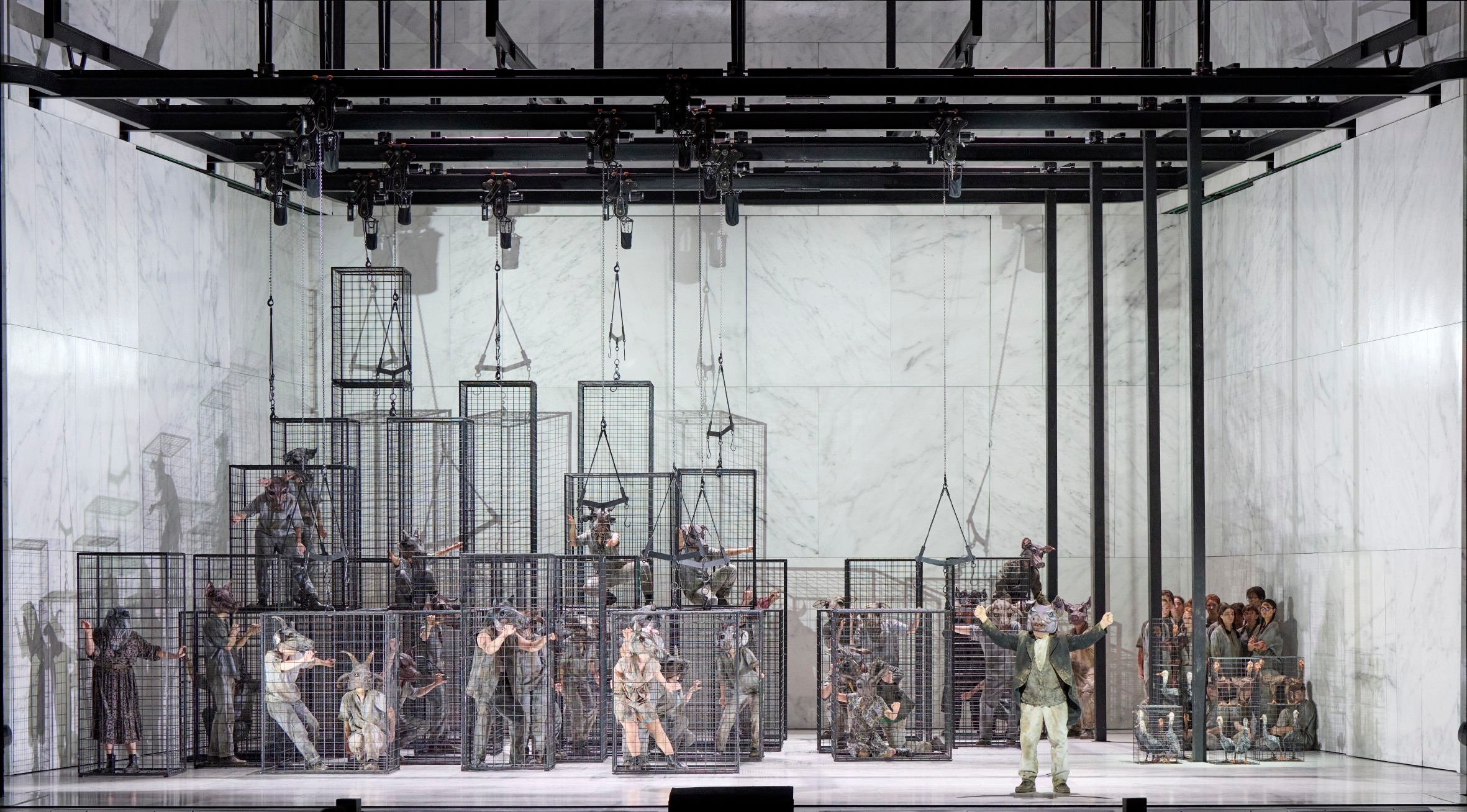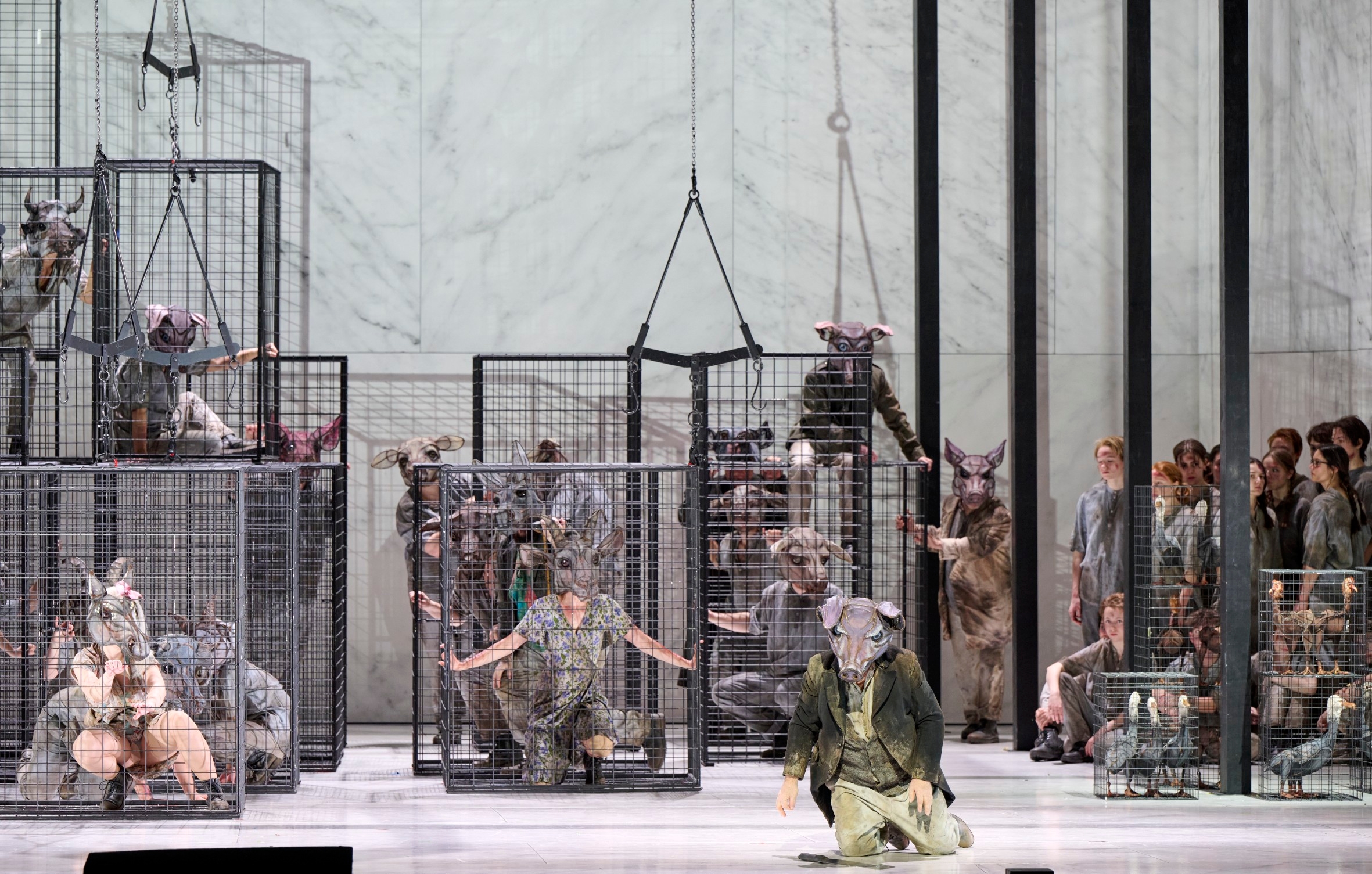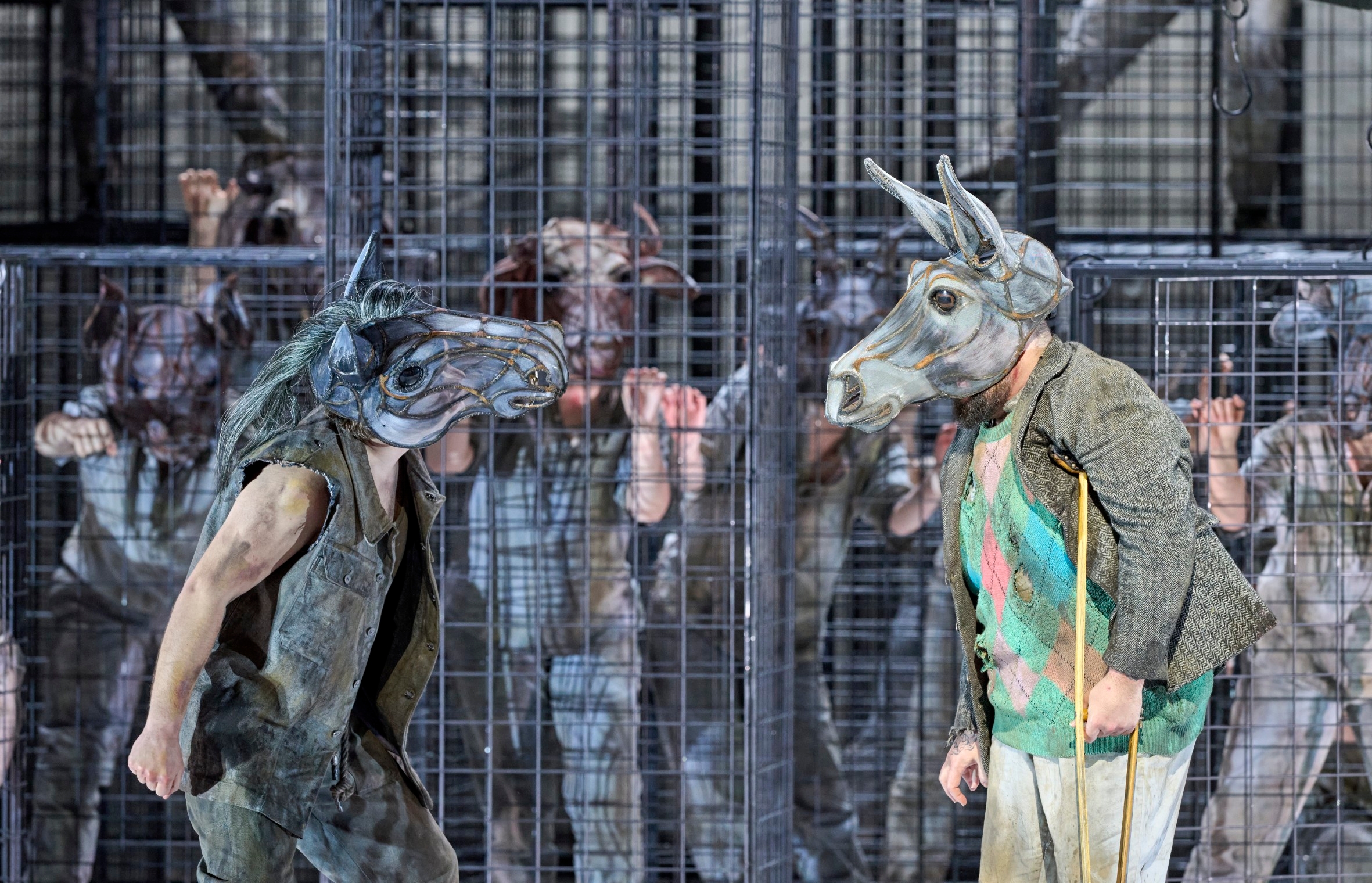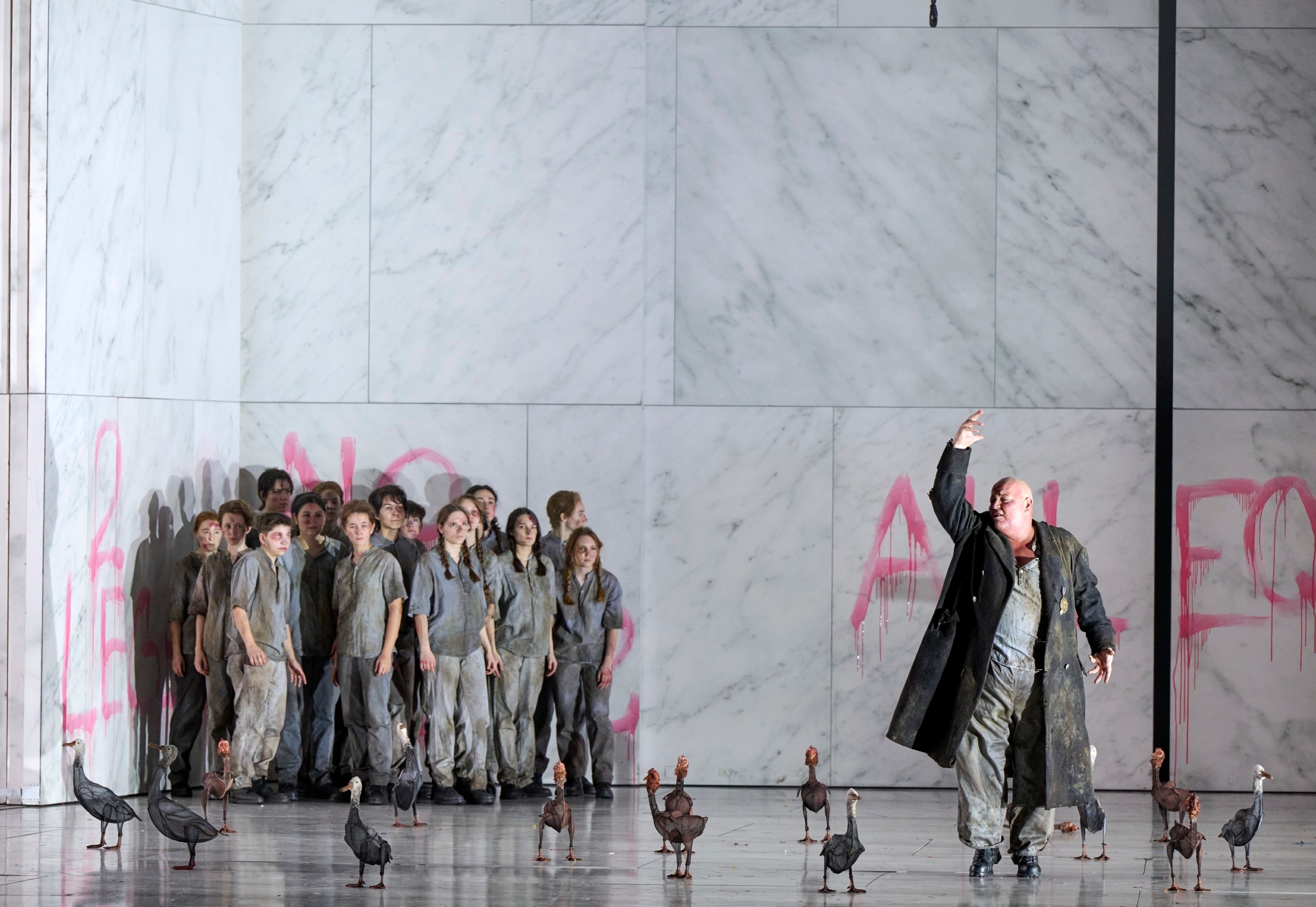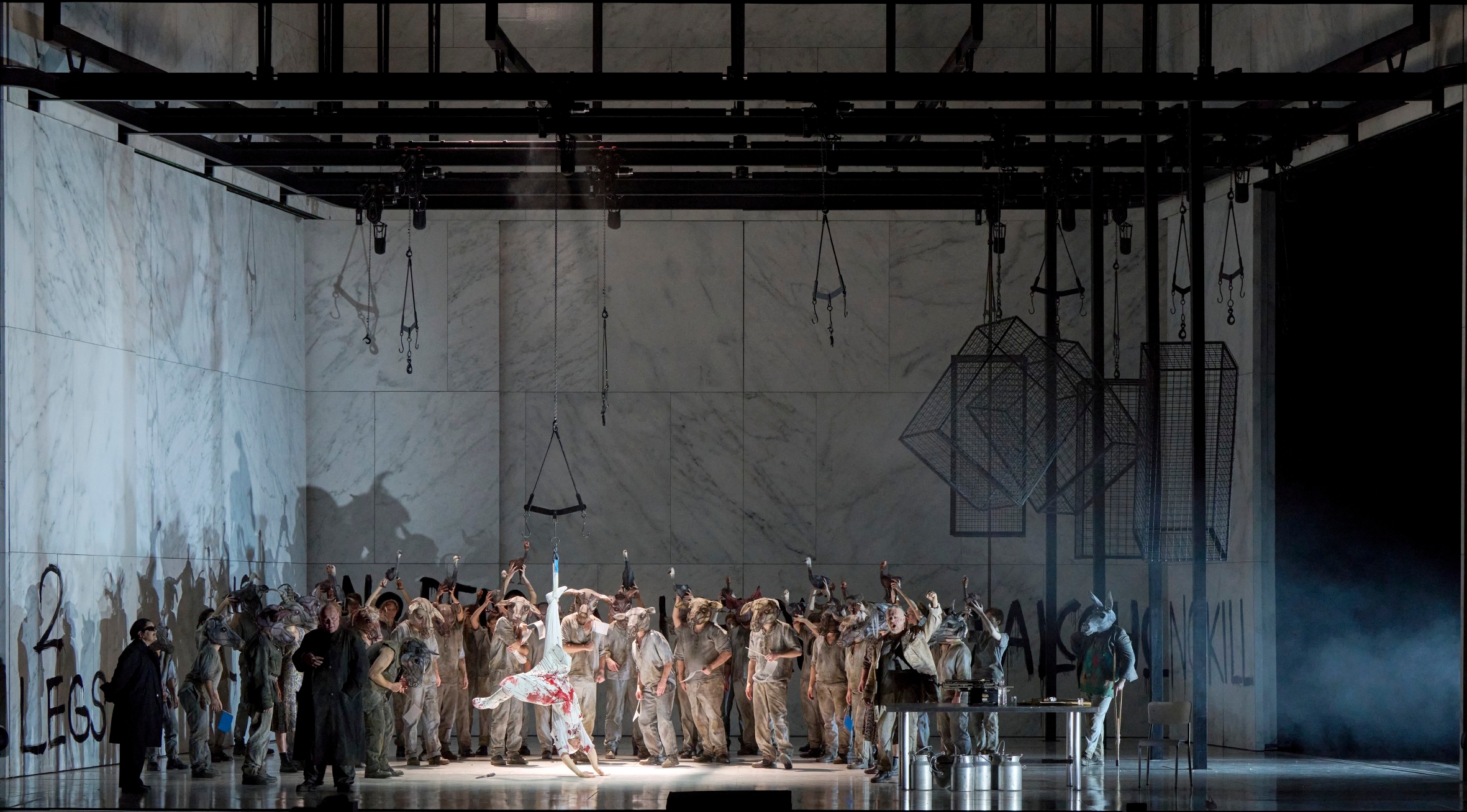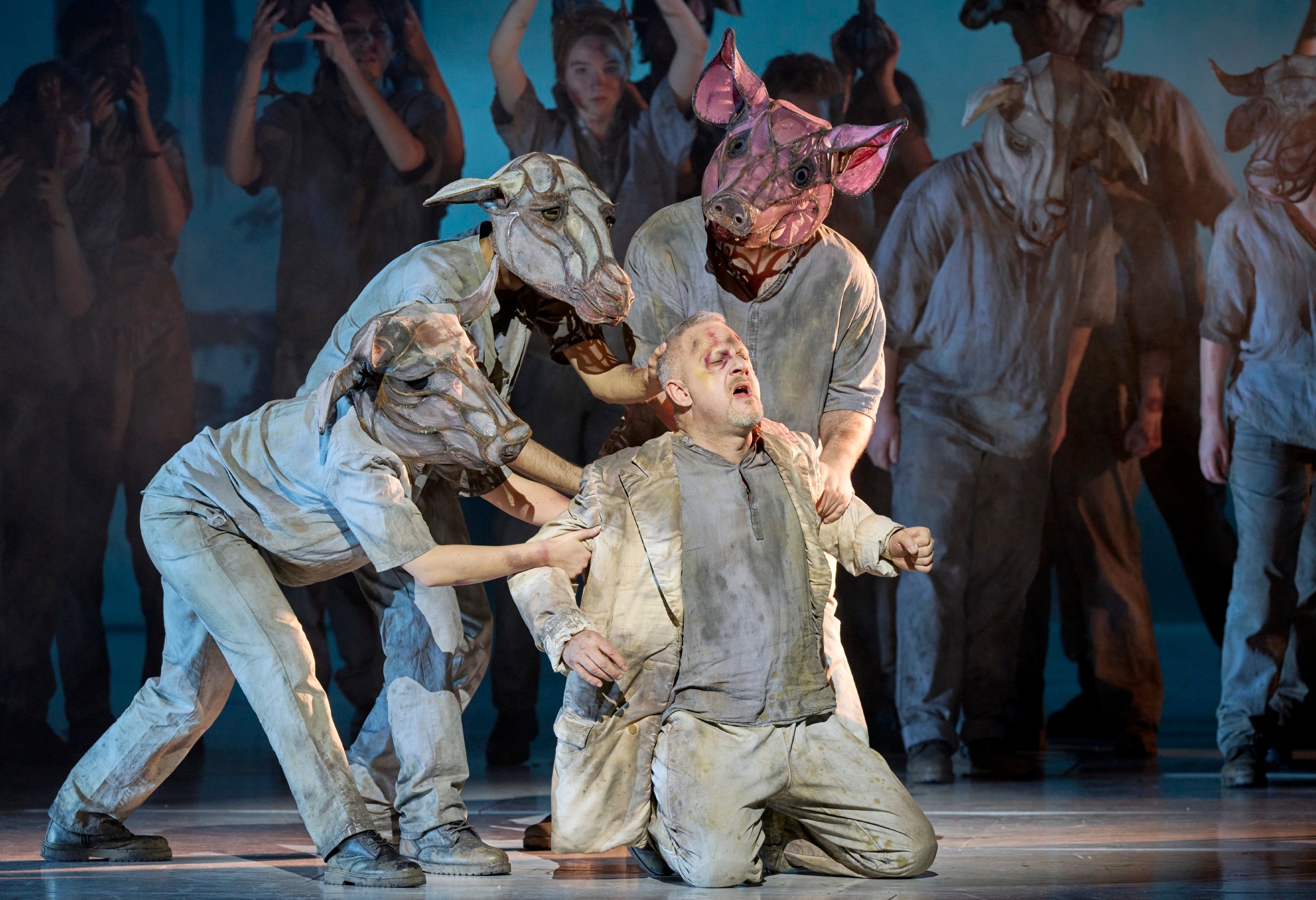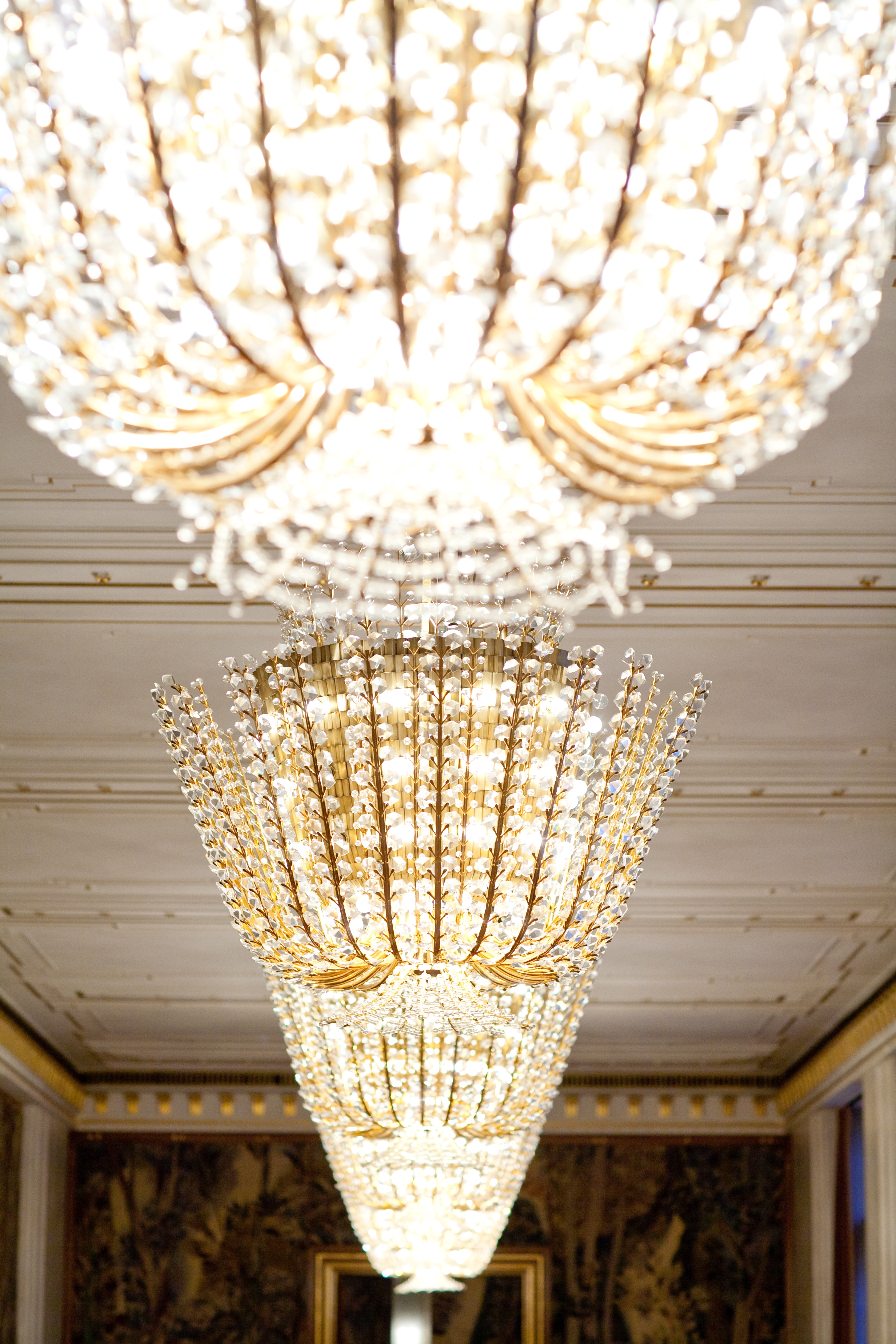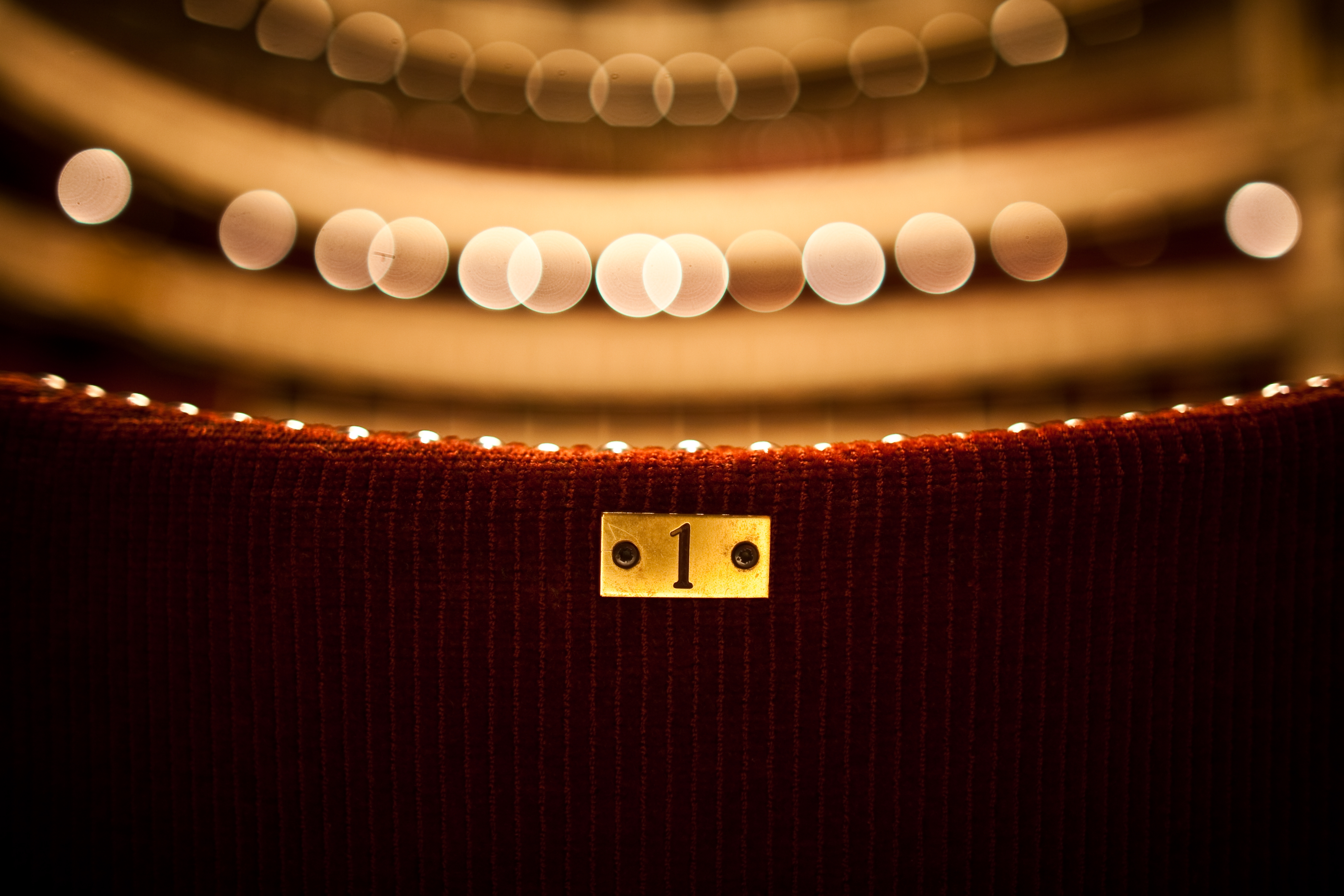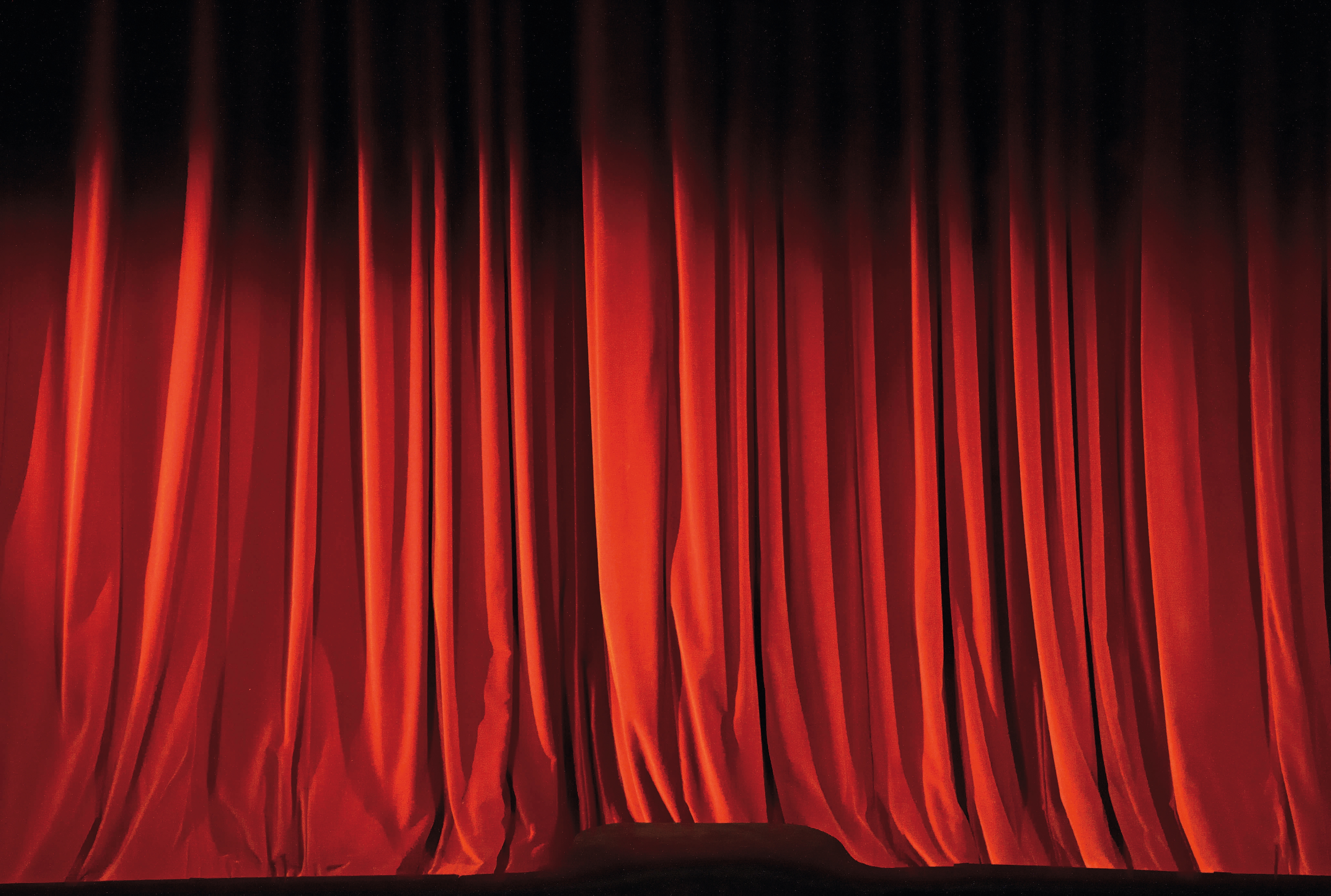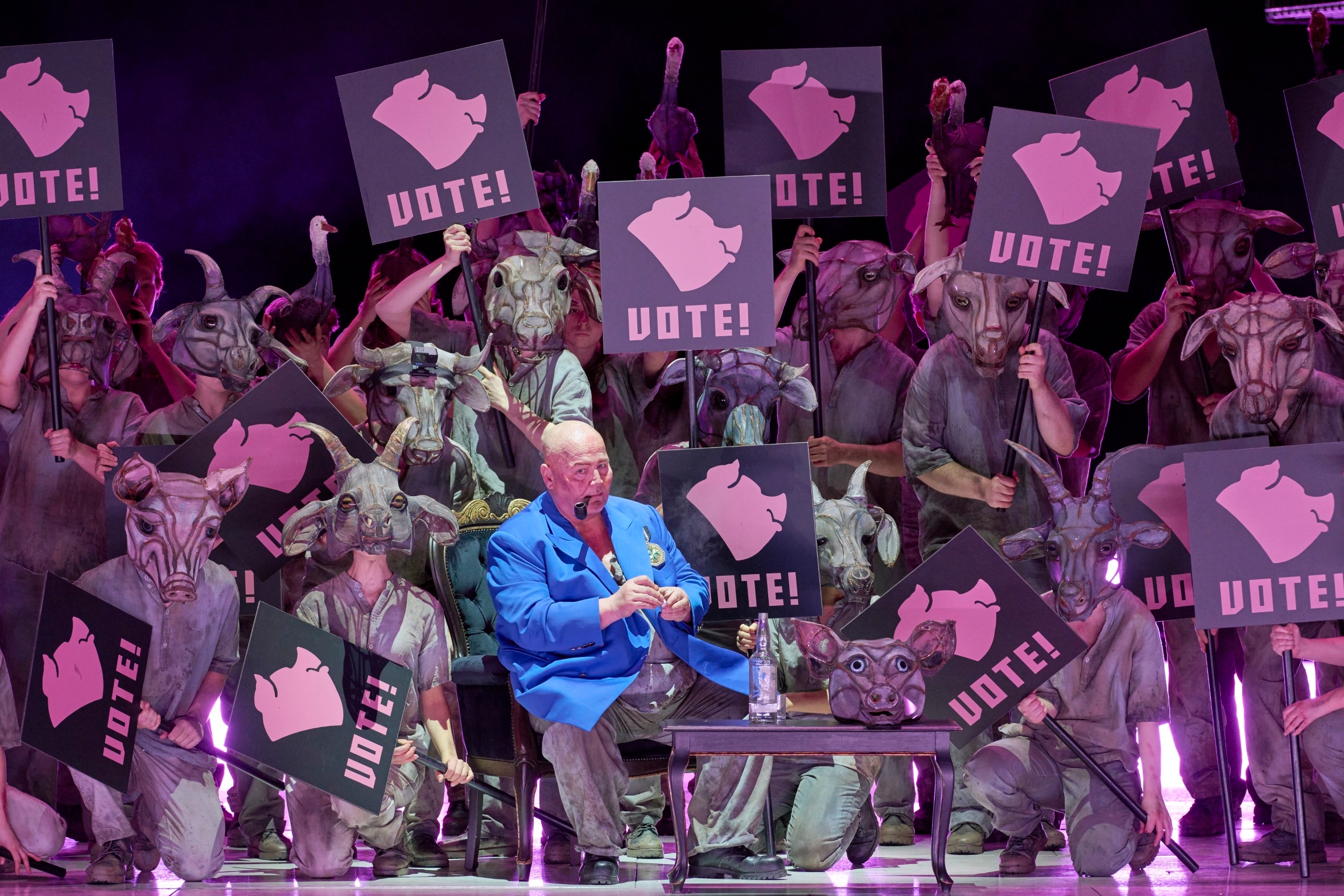
Short Summary
The audience can expect an opera based on Orwell's classic dystopia about a failing struggle for liberation.
On a neglected farm, the animals revolt against their tyrannical owner. After some time, however, they are forced to submit to the yoke of a new leader from their own ranks.
Animal Farm
Storyline
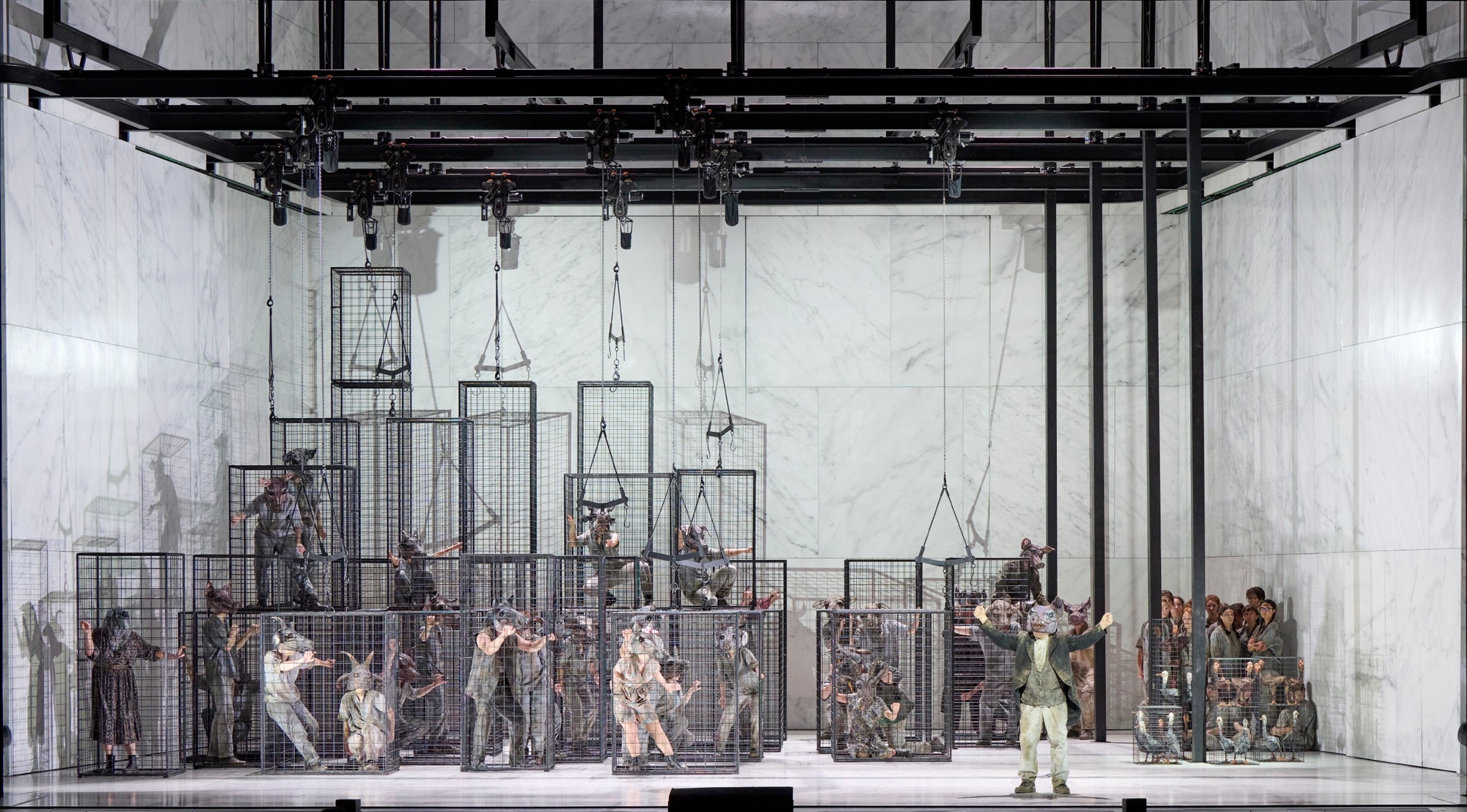
Farmer Jones molests his wife in a drunken stupor. At night, his animals gather to listen to the old boar Old Major. He makes the animals aware of their enslavement by humans and teaches them the revolutionary song "Beasts of Farmland". The animals have very different attitudes to Old Major's thoughts. Raven Blacky holds out the prospect of a post-revolutionary life "like on the rock candy mountain". With the courage of despair, the animals rebel against the brutalization of their master.
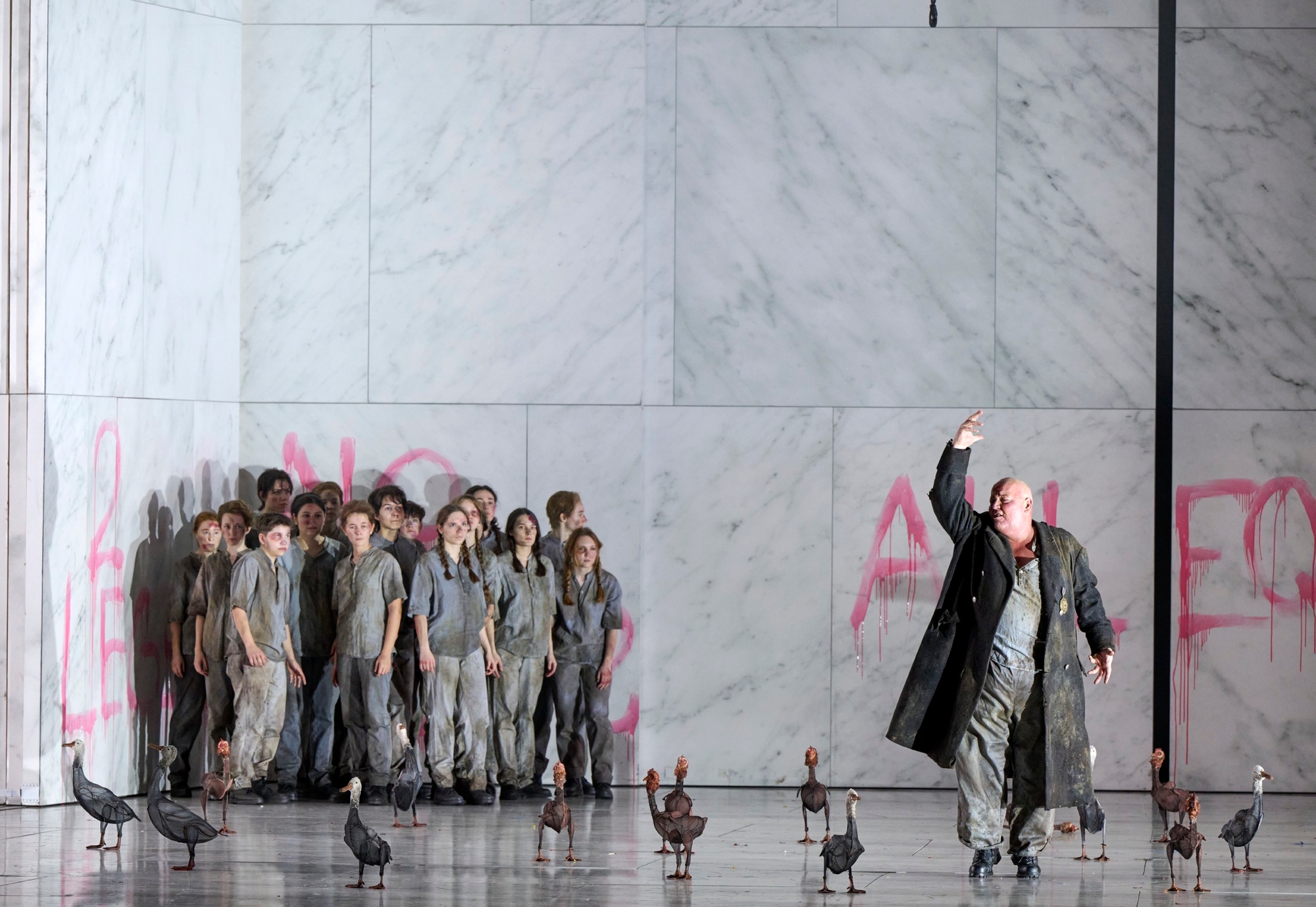
The rebellion is successful. The completely surprised farmer couple is driven off the farm. The revolutionaries declare the former manor farm an animal farm. The two pigs Snowball and Napoleon proclaim the seven commandments of animalism, which guarantee equality for all. They are written on the barn wall and popularized in the slogan "Four legs good, two legs bad". When Benjamin the donkey asks who should receive the milk, Squealer the pig explains that it must go to the pigs to strengthen them in their fight against Jones' return.
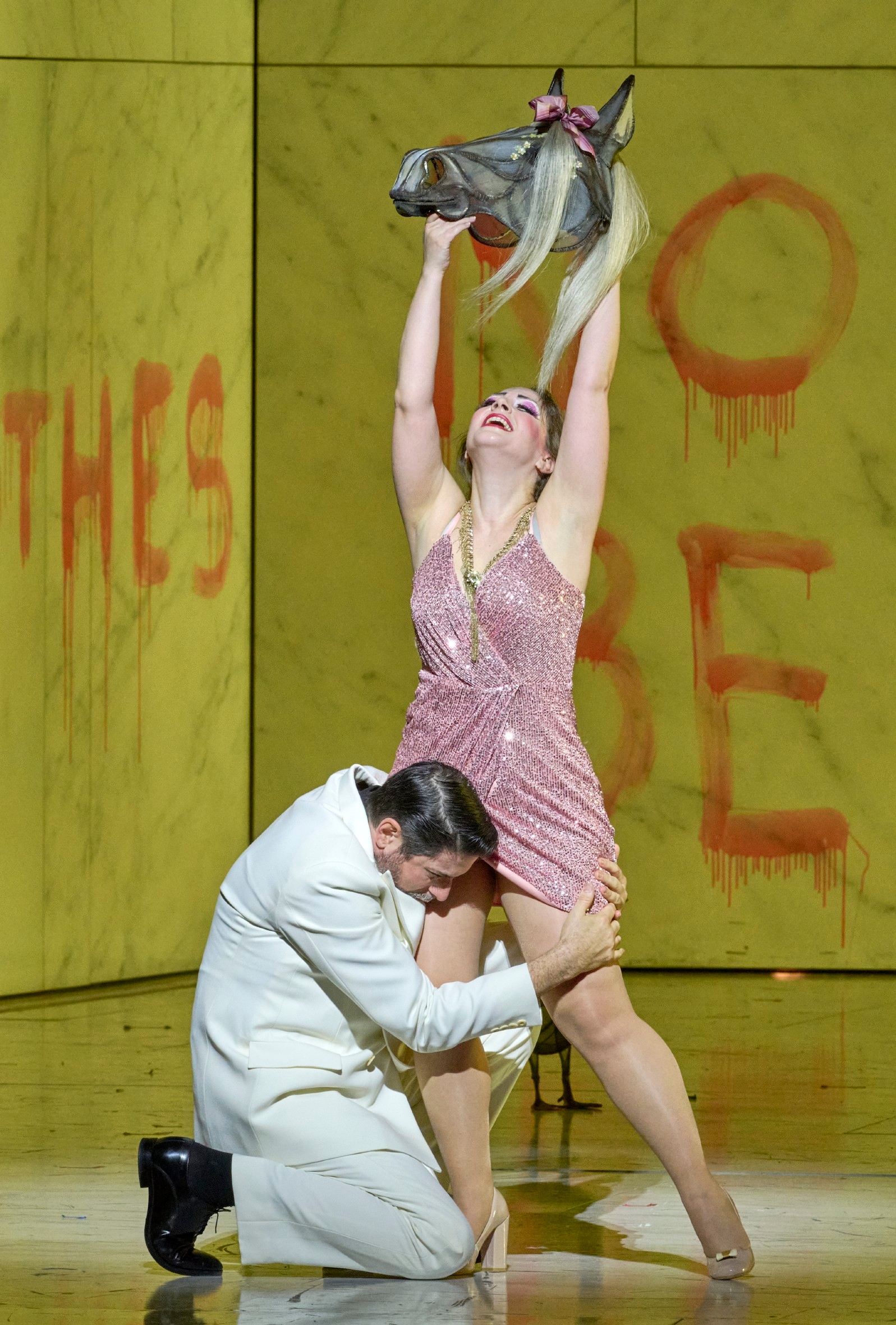
The farmer couple's attempt to recapture the farm with the help of supporters from the neighboring farm of farmer Pilkington can be thwarted despite losses. The draught horse Boxer, who has fought particularly bravely, is honored by Napoleon as an "Animal Hero 1st Class". Napoleon also bestows the award on himself. The mare Mollie succumbs to the seduction of Pilkington's gifts and secretly leaves the farm. Snowball and Napoleon disagree on all leadership issues.
The construction of a windmill propagated by Snowball, which could make the animals' work easier and raise their standard of living, is thwarted by Napoleon: The order of the day was military rearmament. Their conflict escalates. Snowball has to flee. Napoleon denounces him as a traitor, declares himself chairman of the Pig Committee and, as such, orders the construction of the windmill after all. He also announces the establishment of trade relations with Pilkington - although these had previously been forbidden to the animals. Rumors also circulate that the pigs have moved into the empty farmhouse.
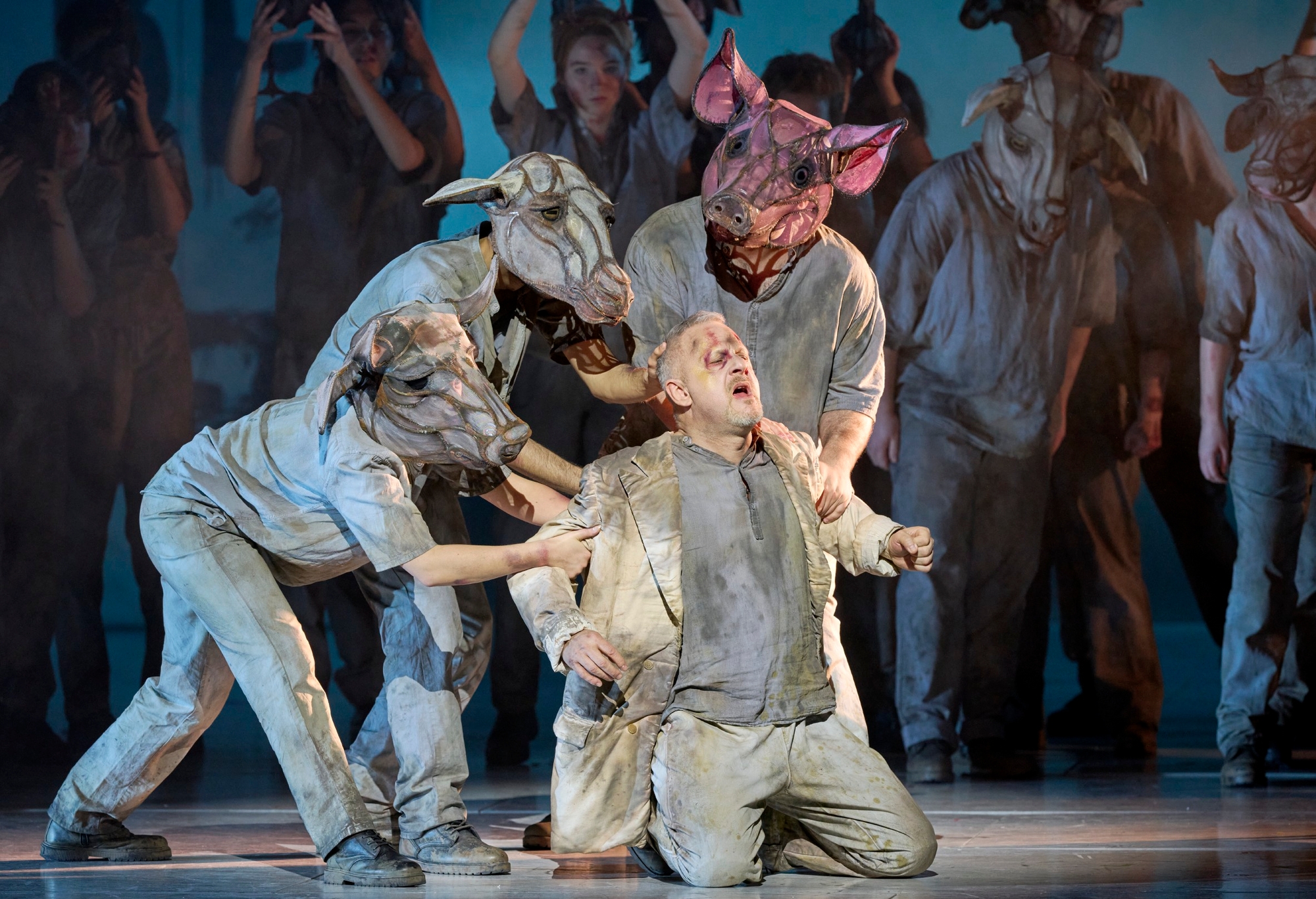
Muriel the goat, who knows the scriptures, is asked to read out the commandment that forbids animals from sleeping in beds. However, the inscription now only prohibits the use of bed covers. The windmill is destroyed by storm and lightning. Napoleon blames Snowball's sabotage. He sentences him to death.
Napoleon's henchmen assassinate Snowball as an alleged "secret agent". His alleged accomplices are paraded in show trials and bloodily massacred. The mare Clover sees all her efforts to build a just community called into question. The animals try to find reflection and solace by singing "Beasts of Farmland" together, but the song is banned by Napoleon.
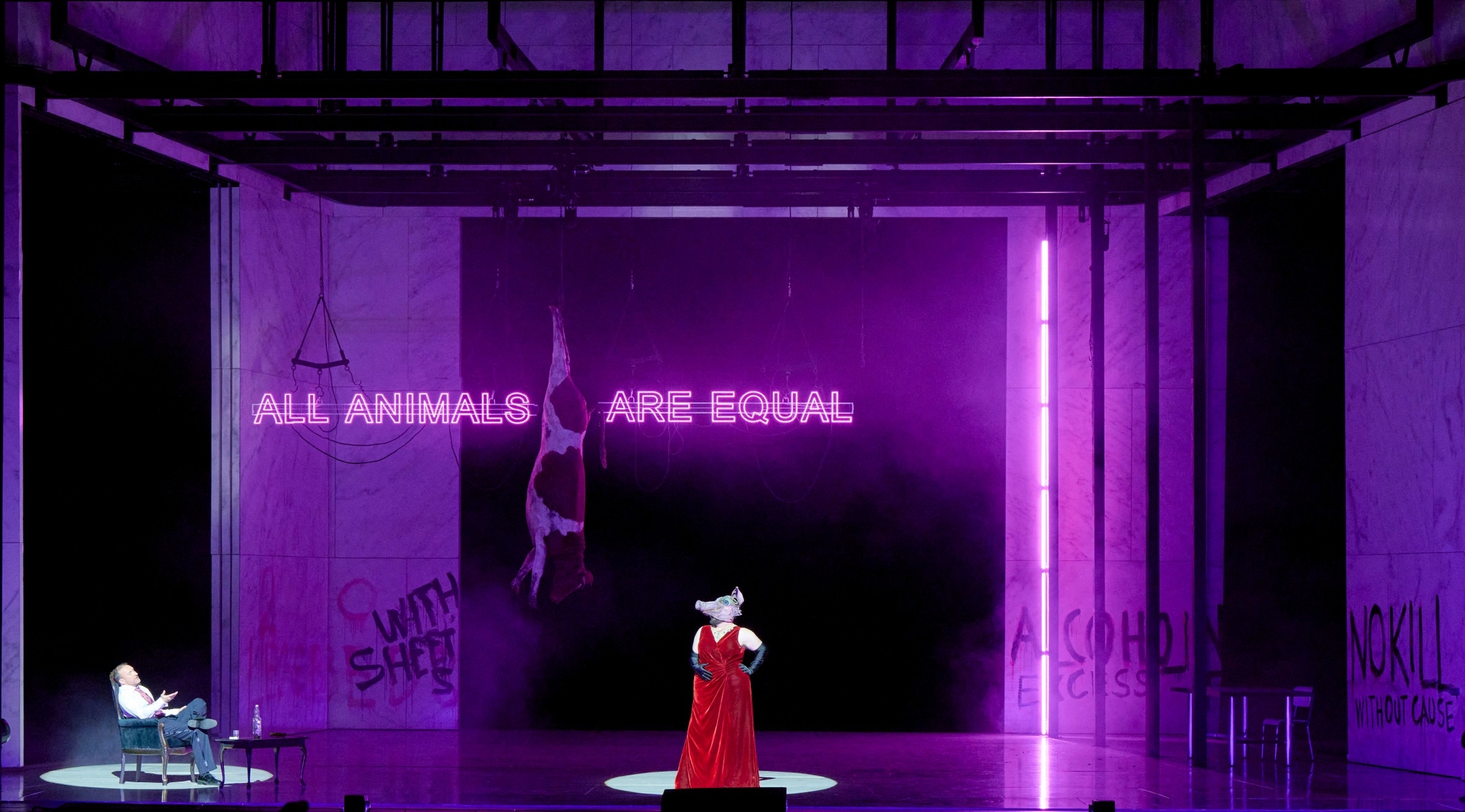
The artist Pigetta, who wants to refuse Squealer, is massacred. When Muriel wants to read the commandment that forbids the killing of an animal by another animal, she deciphers the restrictive words, only if this is done "without reason". The poetic pig Minimus celebrates Napoleon in a song of praise.
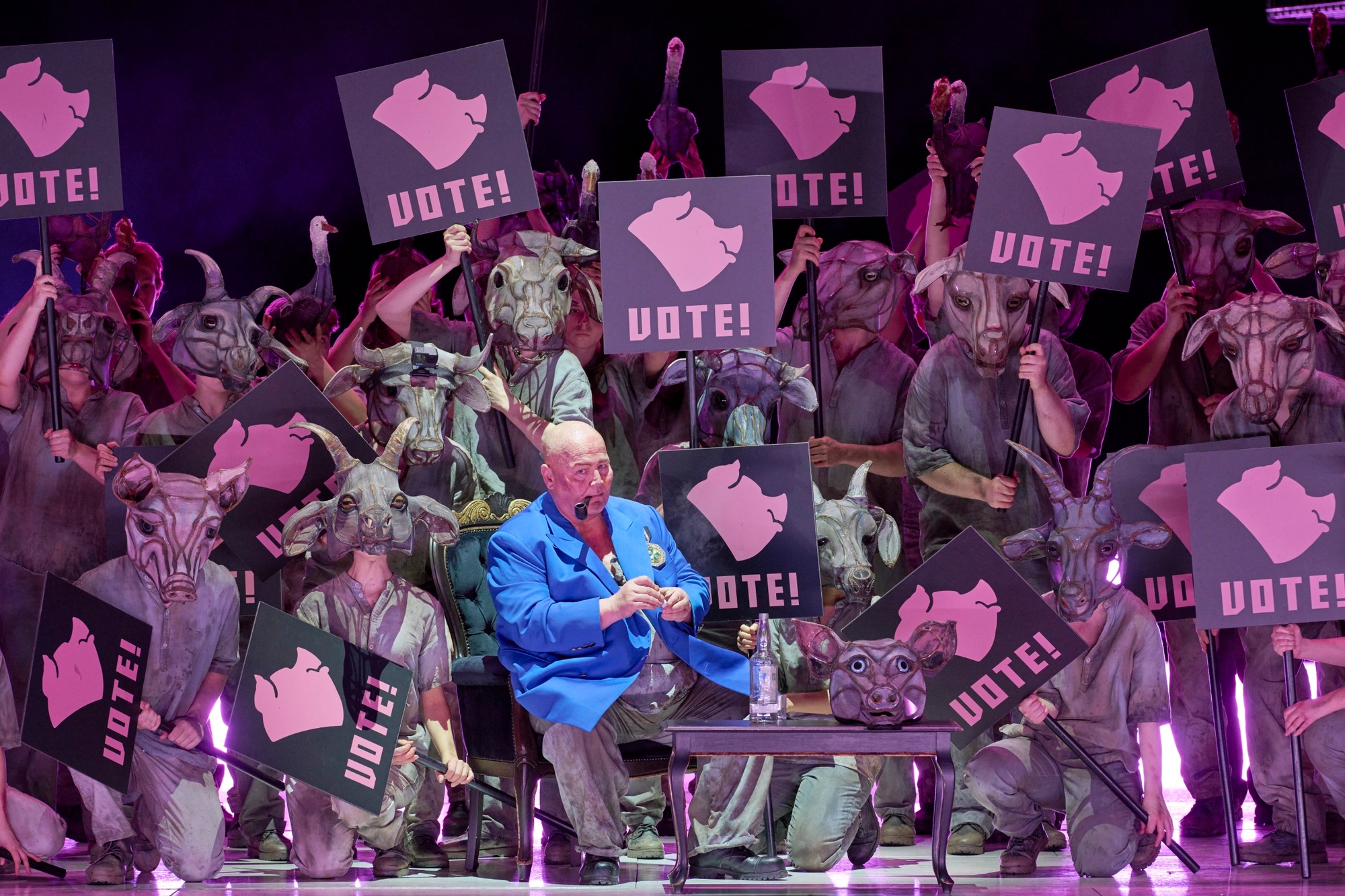
Napoleon receives the news that Pilkington has accused him of fraud and is attacking the windmill with his men. The animals are able to repel the invaders, but the windmill is blown up in the process. Napoleon celebrates his victory despite heavy losses among the animals. A toast is raised to the fallen. The animals are no longer forbidden to drink any alcohol, only excessive alcohol consumption.
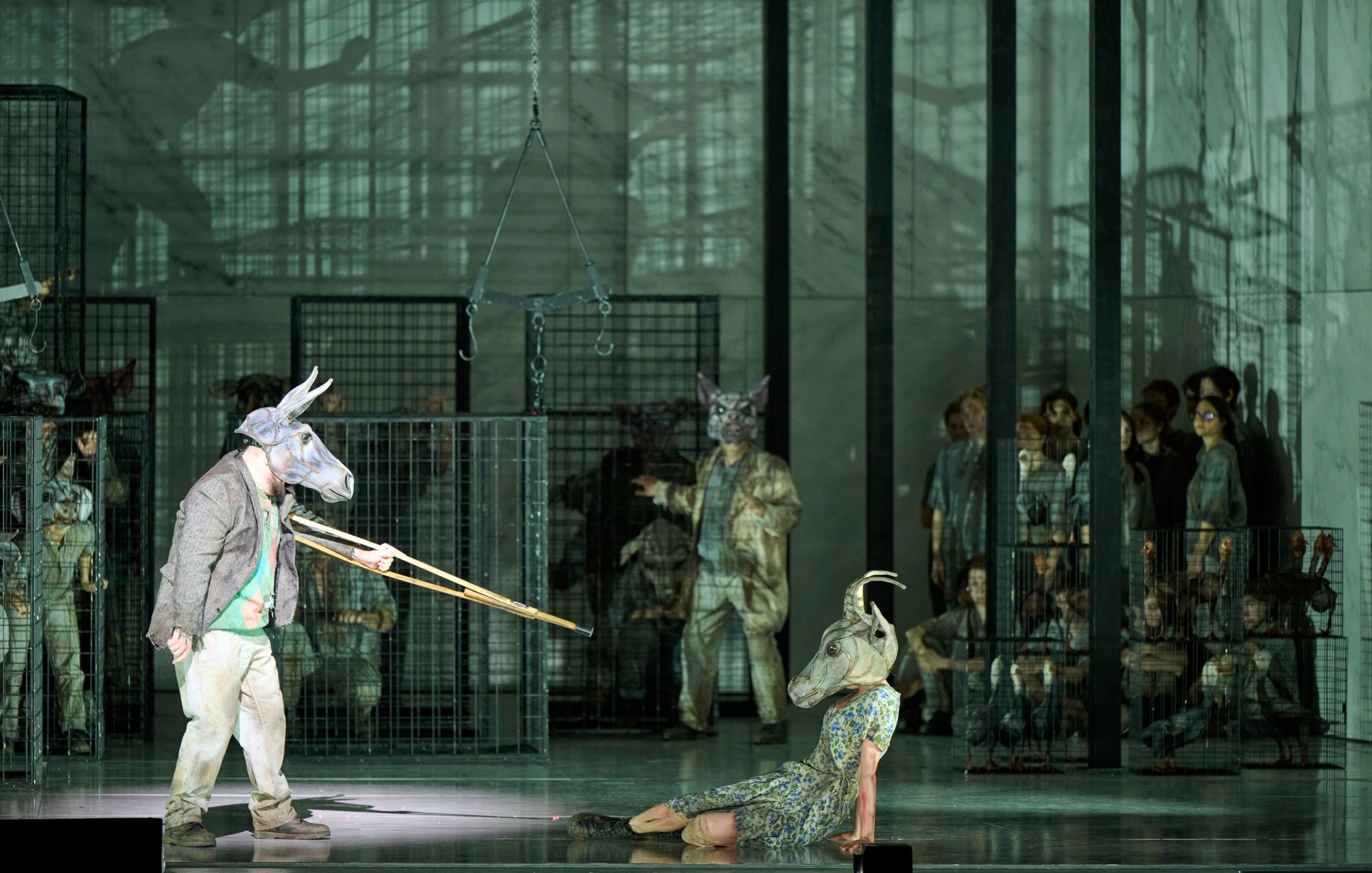
Boxer collapses under the strain of rebuilding. The animals are unable to prevent his transportation to the knacker. Squealer, who claims to have accompanied Boxer to the vet in the hope of a cure, gives them his supposed last words: "Long live Napoleon! Napoleon is always right!" Benjamin has Muriel read out the last commandment left on the barn wall. It reads: "All animals are equal, but some are more equal."
Director Damiano Michieletto has long harbored the desire to bring Animal Farm to the opera stage: »The story is simple, a kind of fairy tale that, if you look at it more closely, deals with important themes such as power, oppression and propaganda in a multi-layered way. The story is cruel, but also includes comic elements. And it allows not only many solo roles but also a choir to be used,« says Michieletto. He found an ideal partner in Alexander Raskatov. Born into a Russian-Jewish family in Moscow in 1953, not far from Red Square and on the day of Stalin's funeral, the composer has already caused a sensation with his setting of another Soviet-critical literary masterpiece: A Dog's Heart (2010/2017), based on Bulgakov's story Dog's Heart, which also premiered at the Dutch National Opera and was then also performed in London, Milan and Lyon.
Director Michieletto has set the action not on a farm but in a slaughterhouse: »The characters are here to be killed. They are locked in cages and dream of freedom. To be an animal here means to be a slave, to be meat, an object in the hands of man.« Michieletto's world premiere production was created as a co-production of several commissioning theaters. It premiered in Amsterdam on March 4, 2023; the Viennese premiere will follow on February 28, 2024.
Raskatov worked intensively with the experienced librettist and dramaturge Ian Burton. It was important to him to combine Orwell's external view of the Soviet empire with internal views of the system by incorporating original quotes from Stalin, Trotsky and the head of the secret service Beria, including the latter's sexualized acts of violence. In terms of language, Raskatov pushed for brevity and condensation as well as translating the narrative into situations that were as vivid as possible. For his setting, he developed a »scalpel style« - as he himself calls it - which contours the events sharply and with rich contrasts. Raskatov also works with musical references to the history of his country. The score provides for no fewer than 21 solo roles, which exploit the full spectrum of human vocal ranges and each of which is given a characteristic individual profile.
»All animals are equal, but some are more equal.« The first two translations of the fable Animal Farm, a parable about the perversion of the Russian revolution under Stalin's dictatorship, were published in Ukrainian and Polish in 1947, the year it was first published. Of course, they had to be published in Western Europe. But even the English original's chances on the Western book market, which put up passive resistance to the manuscript, were more than questionable for some time. As Orwell noted in the preface to the Ukrainian edition, his satire was not primarily about the Soviet Union, of which he only had knowledge through magazines and books, but about the West's illusions about the socialist miracle kingdom in the East. These illusions implied that the regime's totalitarian excesses of violence - from the show trials and deportations to the mass murders, the Holodomor and the Gulag - were actively suppressed and denied. The fact that a »left-wing« author like Orwell wrote against this uncritical admiration was met with silence and disinterest by the circles that considered themselves advanced. While it was geopolitical and party-political interests (the Soviet Union as an ally in the fight against Hitler's Germany and capitalism) that cemented the cartel of silence in Western societies, in the recent past it has been economic interests. The topicality of Orwell's dystopia thus also proves itself in view of the flagrant re-Stalinization of Russian society since the noughties. In the »post-factual« age of populism, the basic question posed by the book remains pressingly acute, even in the West: how is it possible for popular leaders to use a militant rhetoric of freedom and security to assert ruthless power and self-interest?
